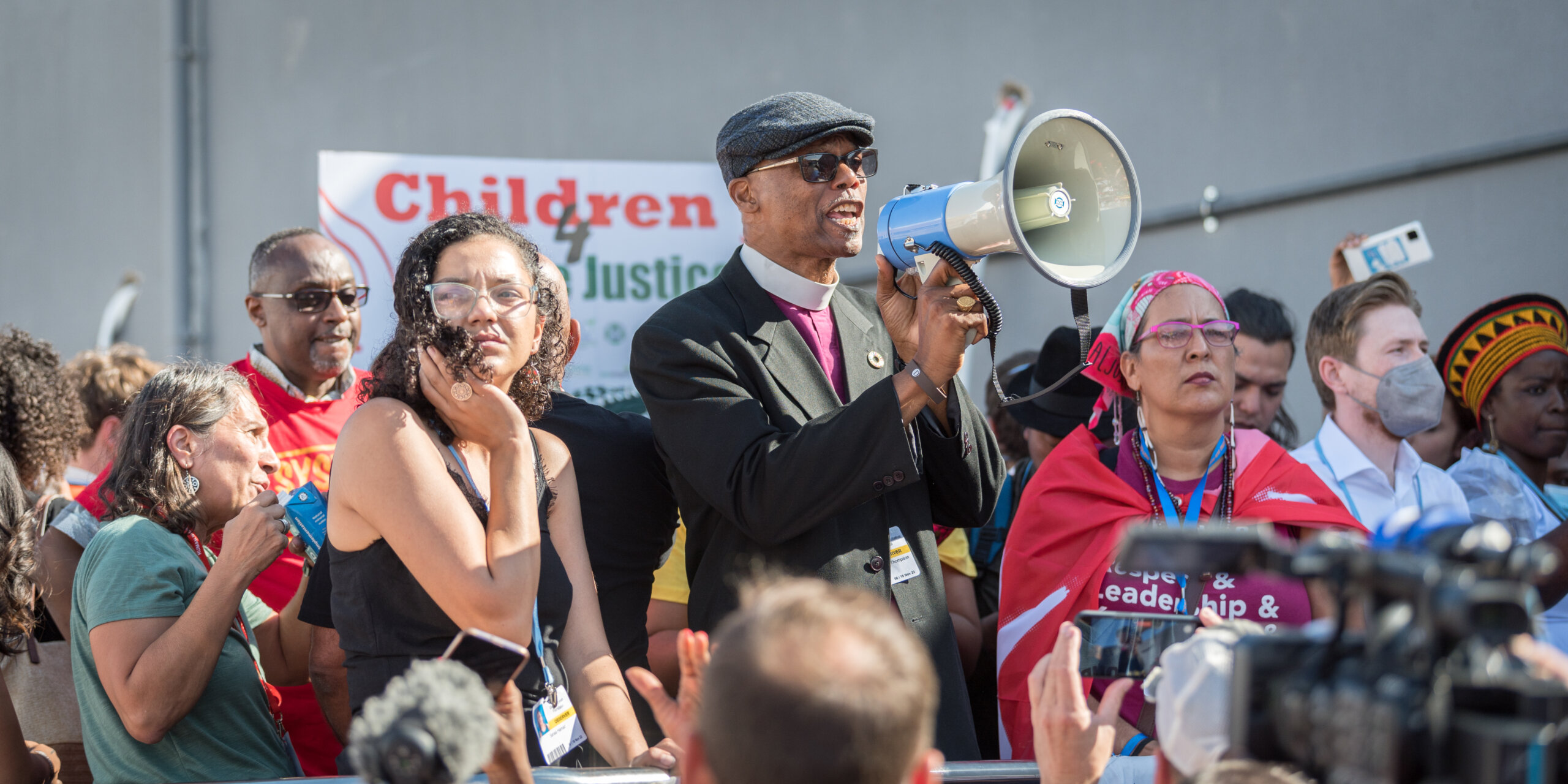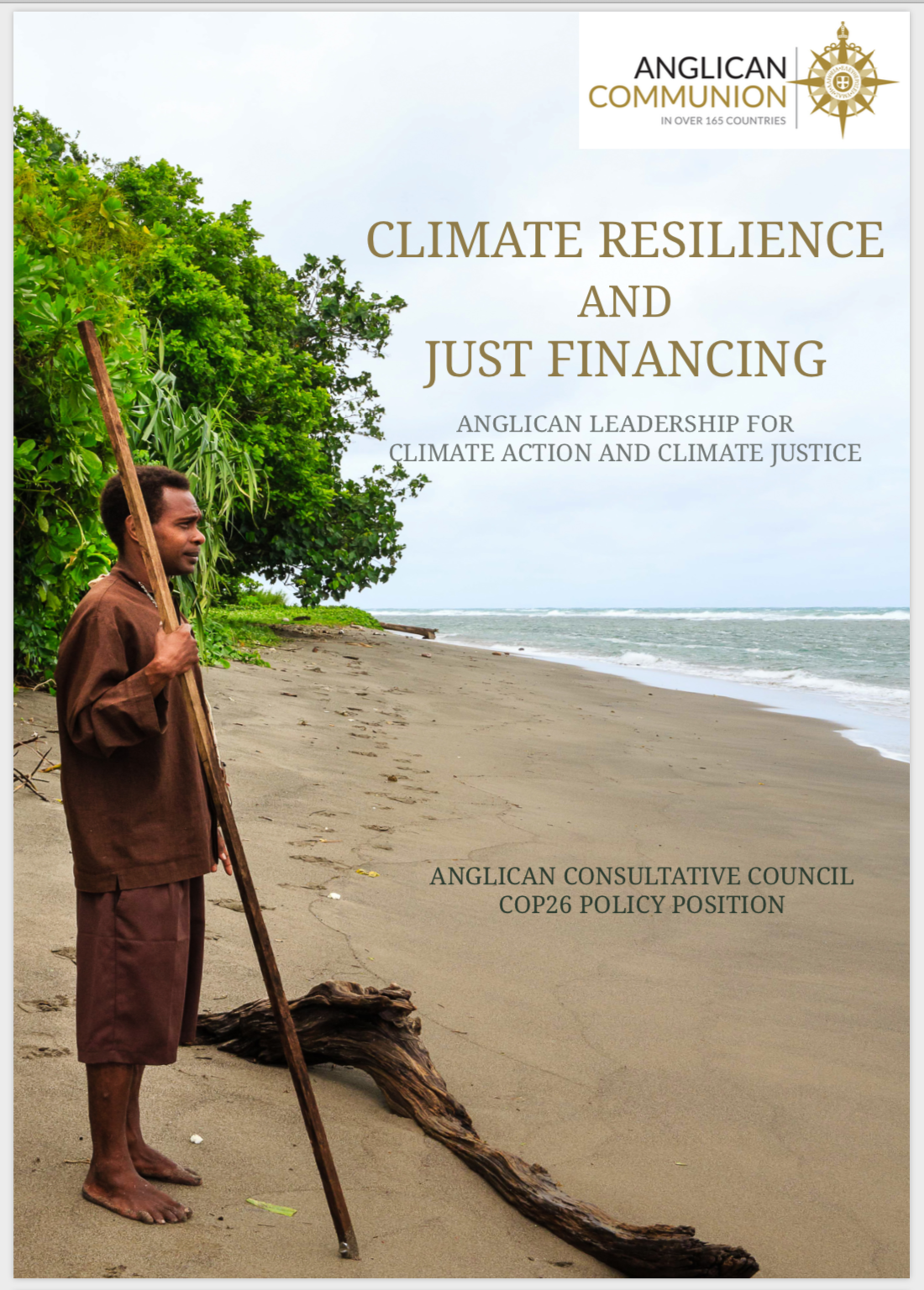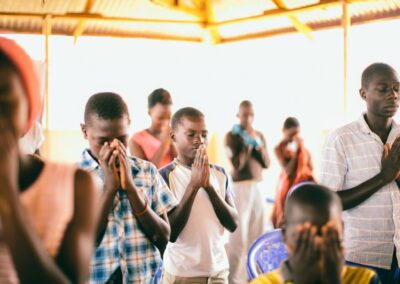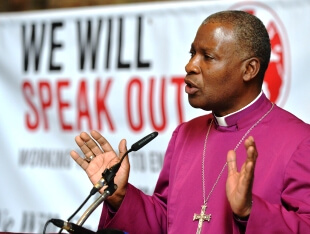Advocacy and influencing
Advocacy
Advocacy has been one of the key pillars of the Anglican Alliance’s work since its inception. The Alliance is mandated to work on global advocacy issues, but not on national ones. Our role there is to support the capacity of national churches for advocacy in their own contexts.
With our broad remit of tackling poverty, injustice and inequality, and safeguarding creation, there are many possibilities and needs for advocacy. How, then, do we decide what to advocate on and how do we go about it?
Our advocacy is based on our unique perspective and our web of relationships.
Read more: Our approach to advocacy - a unique perspective and a web of relationships
Our advocacy engagement is informed by our five priority work areas.
When thinking about our approach, we always start with the same question: “What is it that only we can say, as the Anglican Alliance? What is our unique contribution?” This approach ensures our advocacy is focused and evidence-based (and more manageable!).
Asking what we can uniquely say also means our advocacy is fresh and distinctive.
As the Anglican Alliance, we have a unique perspective because we get to see what’s happening across the whole of the Anglican Communion.
Through our Regional Facilitators and their connections, we reach down into grass roots communities across the world. We know the challenges people are facing – what is most affecting their lives and how people in different parts of the world are similarly affected. We see commonalities, patterns and emerging issues. For example, in early 2022 it was clear that rapidly escalating food insecurity was becoming a major threat in many places.
Through our web of relationships, we are also connected to people of influence and decision makers. Within the Anglican Communion these include bishops, primates, educators and development practitioners. We work with these leaders to help equip them with policy analysis and advocacy skills. We can also help to convene church government relations offices in different provinces to collaborate on defining policy positions, as we did on global equity for Covid vaccines. Externally, we connect with ecumenical partners, secular organisations and global bodies, such as the United Nations and the World Health Organization. Julio Murray
Our web of relationships means we can bring the voices and experiences of people at the grass roots into global decision-making spaces. Our objective is to ensure that the Anglican voice is heard, giving a platform to the poor, oppressed and marginalised, such as young people and Indigenous people – and speaking out for and with them. Our relationship with the Anglican Communion’s Office at the United Nations (ACOUN) is especially important in this regard. In particular, we advocate on the significant and distinctive role of faith actors in humanitarian and development arenas and the importance of effective partnerships with the wider sector.
We don’t just focus on the problems. Our overview also means we see the ways people everywhere are rising to the challenges they face and working to overcome them. This means we also have good news and positive examples to share, meaning we can offer solutions and hope.
All of this means our advocacy is based on lived experience as well as moral conviction.
Resourcing others
A key part of our advocacy work is to resource people and communities around the Communion to engage in advocacy themselves.
For example, ahead of COP26 we helped convene a series of webinars to equip Anglican leadership for climate advocacy. In 2021, we also engaged in major efforts to equip Anglican leaders in G7 countries to advocate for equitable access to Covid-19 vaccines (link).
Advocacy is essential to bring about the scale of change, and the systemic change, needed to address poverty, inequality and the environmental crisis. We will continue to resource Anglicans for advocacy, seeking to build skills and confidence.
Examples of our advocacy engagement:
Safeguarding creation
The Anglican Alliance contributed significantly to the Anglican Communion’s policy papers for the COP26, 27, 28 and 29 climate negotiations and members of staff have been part of the Anglican Communion’s delegations to these COPs, the United Nations Environment Assembly and Convention on Biological Diversity.
We helped convene a series of global webinars ahead of COP26 to equip Anglican leadership and the Alliance’s Regional Facilitators are engaged in local capacity building for climate justice advocacy.
The Alliance’s Regional Facilitators are involved in regional initiatives on creation care and environmental justice.
The Anglican Alliance has supported the Archbishop of Canterbury and other senior leaders in their climate advocacy work.
Resilience and disaster response
Building resilience was one of the two key focus areas of the Anglican Communion’s COP26 policy paper and COP27 update. Specific calls included: “Resilience planning must include comprehensive, multi-sector interventions and responses supported by adaptive and flexible funding, and designed with the active participation of local and affected communities, particularly Indigenous peoples, women and youth”. The paper included examples of what the Church is doing to build resilience.
Tackling inequalities
The Anglican Alliance has worked with the ACOUN, Gender Justice department, Lambeth Palace and others to highlight inequalities and injustices experienced by people across the Communion. Examples include our input into submissions on food security to the United Nations Commission on Population and Development, on human rights and climate change to the UN Human Rights Council and on gender justice and climate change to the United Nations Commission on the Status of Women.
Flourishing communities
Our work on advocacy for global equity in access to Covid-19 vaccines is described in the section on our Covid-19 work
People on the Move
Over the years, the Anglican Alliance has supported senior leadership in the Communion in their advocacy on modern slavery and human trafficking. This included support towards the global faith declaration in 2014. We also worked with Lambeth Palace to convene a meeting with the Commonwealth countries and faith communities on tackling human trafficking. In Central America, the Alliance regional facilitator works with a regional group of bishops and others to advocate for more just policies on migration. The Alliance also helps convene the Communion’s Global Working Group on Migration, equipping members on policy and advocacy issues between regions and globally.

Archbishop Julio Murray, Bishop of Panama, trustee of the Anglican Alliance and the Anglican Communion’s lead archbishop for the environment, speaking on behalf of all faith groups at the COP27 climate negotiations in Sharm El Sheikh.
Influencing
Alongside advocating for specific policy changes, we are also engaged in a wider work of influencing: encouraging changes in mindsets and perceptions about the ways we see the world and relate to one another. This work is grounded in our faith, in theological reflection and in prayer.
Actions, particularly those that are bold in the face of political inaction, are difficult to sustain unless there is also the transformation of hearts and minds from which such action flows. The failure of global leaders to act seriously neither on ensuring a timely and equitable global roll out of Covid-19 vaccines nor committing to just financing for climate change adaptation, mitigation and loss and damage, indicate the magnitude and importance of the work to be done in changing attitudes.
This is where the Anglican Communion, along with other faith actors, can contribute most profoundly through word and deed in highlighting that the multiple crises our world faces are not simply physical crises – they are also spiritual ones.




